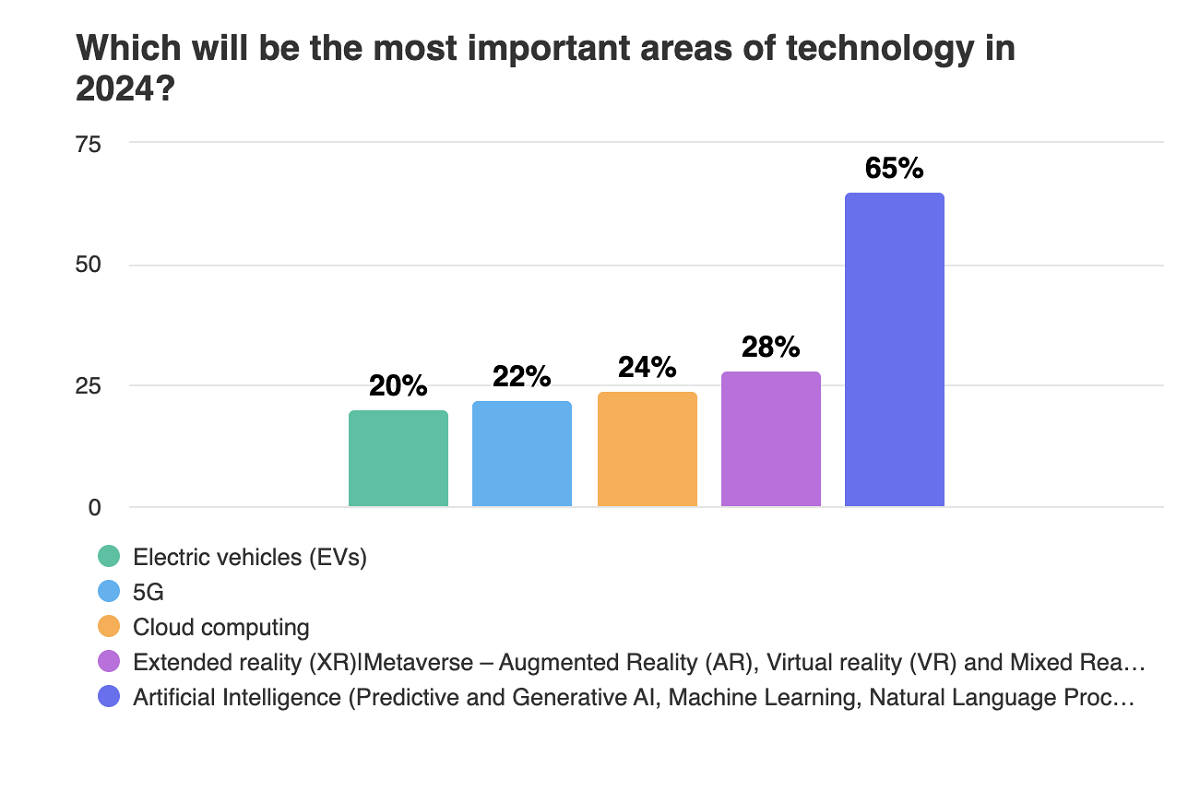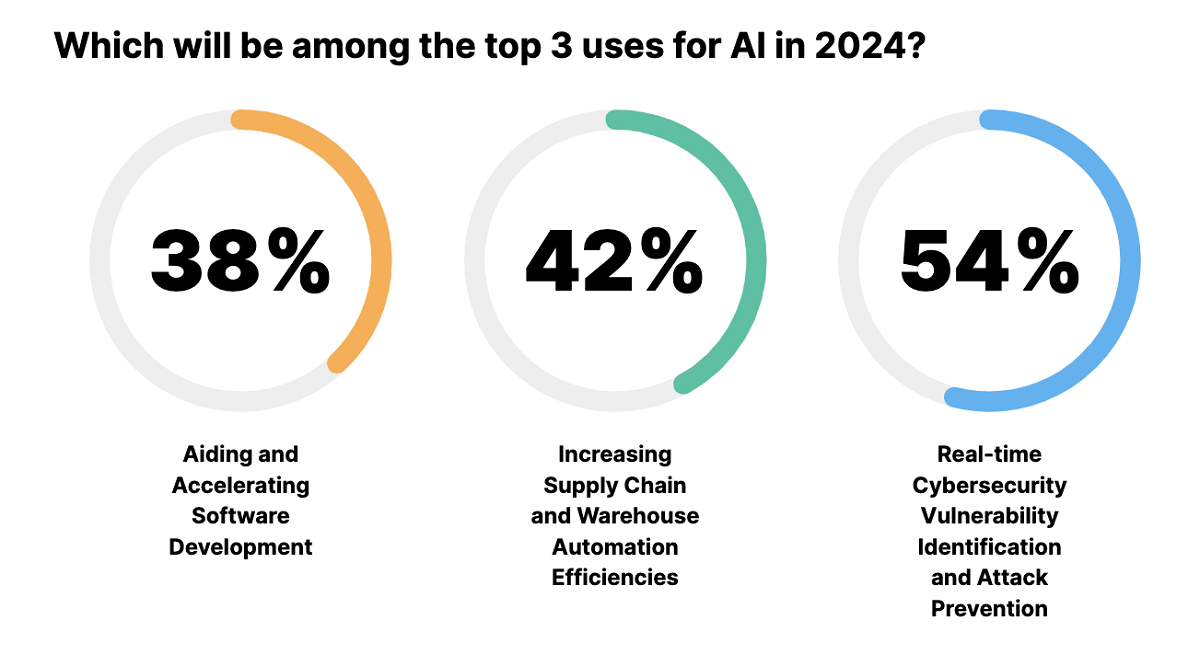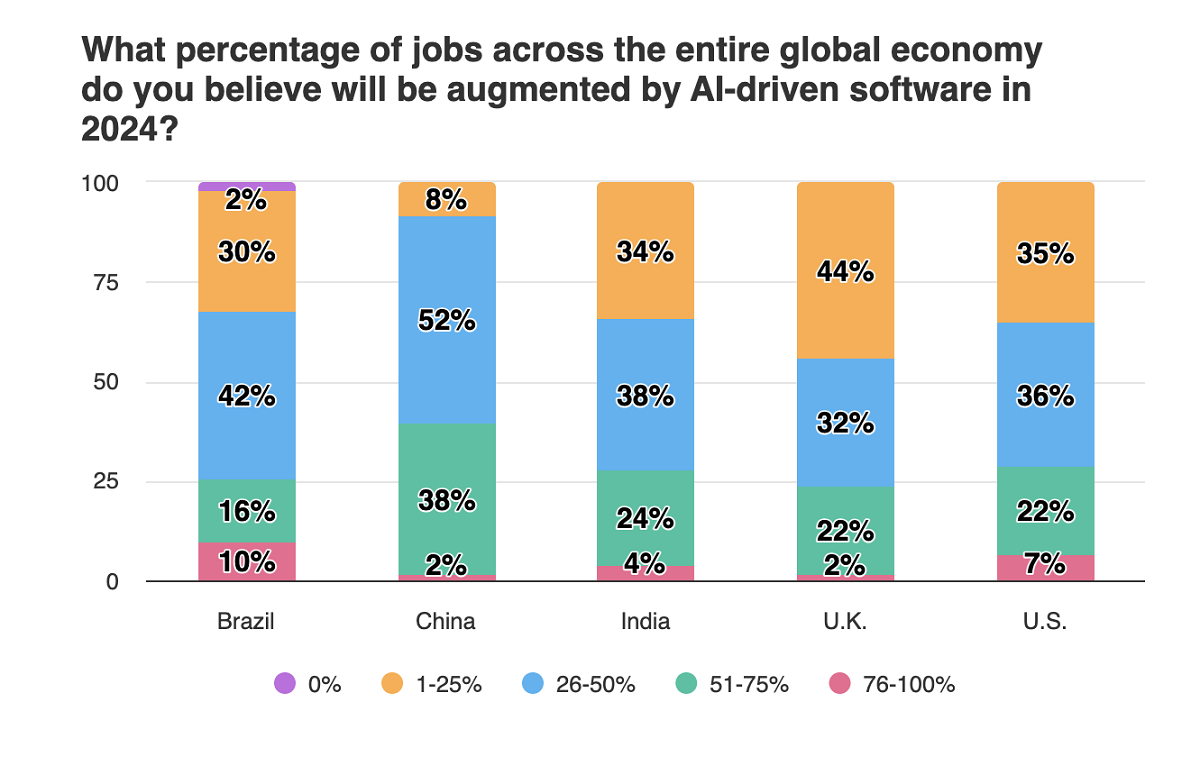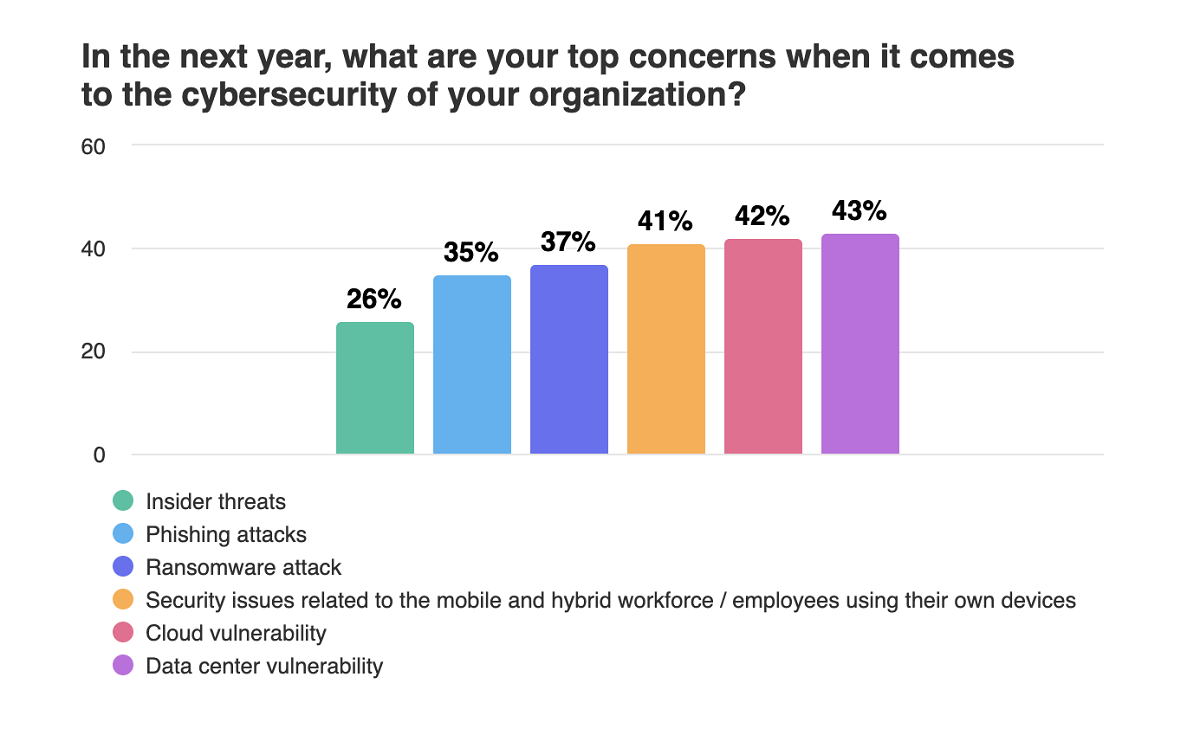
TL;DR
- An IEEE study, “The Impact of Technology in 2024 and Beyond,” found AI as the technology most likely to have the greatest impact on a broad range of industries from film to medicine.
- Prompt engineering and the ability to verify AI’s deliverables are required skills needed to generate meaningful outcomes with generative AI.
- The study also finds that 5G rollout is still a work in progress and hasn’t kept pace with expectations.
READ MORE: The Impact of Technology in 2024 and Beyond: AN IEEE global study (IEEE)
Extended reality, cloud computing, 5G and electric vehicles are also among the top five most important technologies in 2024, according to the IEEE, but let’s guess what comes in at the top.
The survey of global technology leaders from the US, UK, China, India and Brazil found AI to be the most impactful technology next year, encompassing predictive and generative AI, machine learning (ML) and natural language processing (NLP).
By contrast, extended reality (XR), including metaverse, augmented reality (AR), virtual reality (VR) and mixed reality (MR), came second, just ahead of cloud computing in third.
AI, though, was voted in the top place by more than 65% of respondents, which included 350 CTOs.
In 2024, AI applications and algorithms that can optimize data, perform complex tasks, and make decisions with human-like accuracy will be used in diverse ways, the study finds.
According to the survey, among the top uses of AI in the coming year will be real-time cybersecurity, increasing supply chain efficiency, aiding and accelerating software development, automating customer service, and the speeding up screening of job applicants.
However, integrating AI into existing work isn’t as straightforward as flipping a switch. In the study, nearly half of respondents said they see difficulty integrating AI into existing workflows as one of the top three concerns when it comes to using generative AI in 2024.
“New use cases of generative AI and their integration into the general architecture may turn [out] to be serious challenges,” said IEEE life senior member Raul Colcher. “Good business analysts and system integrators will be essential.”
Additional data from the survey illuminates the challenge. Respondents were asked to list the top skills they were looking for in candidates for AI-related roles.
“Prompt engineering, creative thinking and the ability to verify AI’s deliverables — these three skills are what you need to generate meaningful outcomes with the aid of generative AI,” said IEEE senior member Yu Yuan.
IEEE member Todd Richmond added, “We need to collectively figure out what are ‘human endeavors’ and what are we willing to cede to an algorithm, e.g., making music, films, practicing medicine, etc.”
The benefit of AI is clear to many, but there’s a tricky part: potential risks. Among them is the risk of overreliance on generative AI for facts. As the IEEE puts it, the problem is that those facts aren’t always accurate. And with all forms of AI, it can be difficult to find out how, exactly, the software arrived at its conclusion.
In the survey, 59% of respondents cited an “overreliance on AI and potential inaccuracies” as a top concern of AI use in their organizations. Part of the problem is that the training data itself can be inaccurate.
“Verifying training data is difficult because the provenance is not available and volume of the training data is enormous,” said IEEE life fellow Paul Nikolic.
In 2024 and beyond, expect intense efforts to ensure that AI results are more accurate, and the data used to train AI models is clean.






